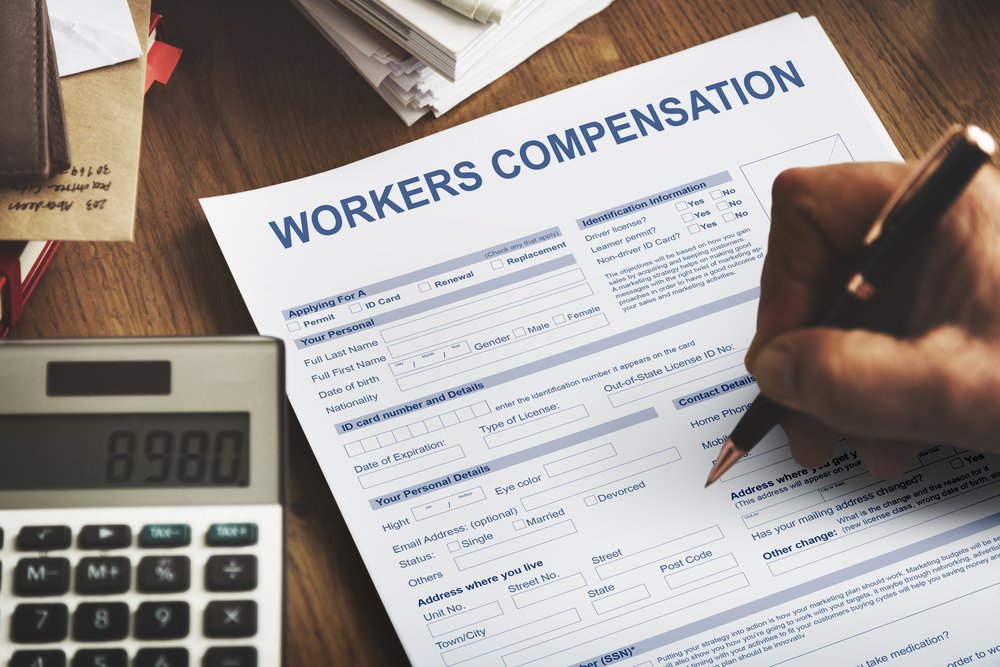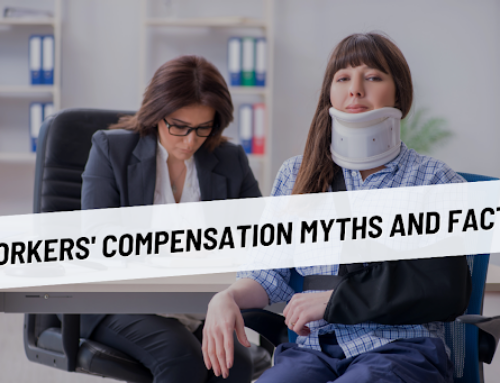The workers’ compensation system is vital, created to safeguard employees facing work-related injuries or illnesses. Grasping the fundamentals of workers’ compensation is key for employers and employees, guaranteeing equitable treatment and appropriate compensation in workplace accidents or injuries through a workers’ compensation lawyer.
Understanding the Basics
Workers compensation is an insurance type offering medical benefits and wage replacement to employees injured or falling ill while fulfilling their job responsibilities. It operates on a no-fault basis, ensuring employees receive benefits irrespective of fault for the injury or illness.
Key aspects of workers’ comp Claims include:
Coverage: Workers compensation lawyer usually handles injuries and illnesses linked to work duties. This encompasses accidents, repetitive strain injuries, work-related diseases, and exacerbation of pre-existing conditions.
Benefits: If you get hurt on the job, you might receive help like medical care, therapy, payments for time off, training for a new job if needed, and support for your family if you die from the injury.
Legal Requirements: In some states, it’s the law for employers to offer workers compensation coverage to their employees. Failing to do so could mean facing fines, penalties, and legal obligations.
Claims Process: When injured or ill at work, they must report the incident to their employer and file a workers’ comp claim. This process generally entails recording the injury, receiving medical care, and completing the required paperwork for submission to the employer’s insurance provider.
Importance of Legal Assistance
The advantages of hiring a Long Island workers compensation lawyer are notable, particularly for those facing the complexities of a workplace injury or illness aftermath. While managing a workers compensation claim alone is feasible, seeking the guidance of a skilled workers compensation lawyer offers substantial benefits.
Knowledge and Expertise: Understanding workers compensation laws can be tricky, especially since they differ from state to state and are frequently updated. That’s where the best lawyer for workers’ compensation comes in handy. They can provide invaluable assistance to clients, ensuring they comprehend their rights and navigate through the claims procedure smoothly.
Maximizing Benefits: The best lawyer for workers’ compensation can help injured employees maximize their workers’ compensation benefits by ensuring that all eligible expenses and losses are accounted for in their claims. This may include medical bills, lost wages, vocational rehabilitation, and future disability payments.
Protecting Legal Rights: Employers and insurance companies may attempt to minimize or deny workers’ compensation benefits to save costs. A Long Island workers’ compensation lawyer can safeguard the legal rights of injured workers and guarantee they receive equitable treatment and compensation as per legal standards.
Unlocking the Advantages of Engaging a Workers’ Compensation Attorney
Guidance Through Complex Processes
Understanding Legal Requirements: Workers’ compensation laws vary by state and can be complex to interpret. The best lawyer for workers’ compensation with ample knowledge can simplify the intricacies of the law about your situation, ensuring that you understand your rights and obligations throughout the legal process.
Navigating Paperwork and Procedures: The workers’ compensation claims process often involves extensive paperwork and strict deadlines. A Long Island workers’ compensation lawyer can assist you through every stage, ensuring all required paperwork is accurately filled out and submitted promptly to prevent delays or rejections.
Gathering Evidence: Building a strong case for workers’ compensation benefits requires thorough documentation of your injury, medical treatment, and related expenses.
The best lawyer for workers’ compensation can assist in collecting and arranging evidence, medical records, witness testimonies, and expert viewpoints.
Representing Your Interests: In legal proceedings, having legal representation can significantly strengthen your position. A workers’ compensation lawyer will protect your rights and interests diligently.
Maximizing Compensation: Figuring out what your workers’ comp claim is worth can be done by legal help. A Long Island workers’ comp lawyer looks at how bad your injury is, your medical bills, and the impacts on your ability to earn a living.
Looking Beyond the Basics: Apart from covering medical bills and lost income, there could be other perks you’re entitled to, like vocational training, permanent disability benefits, or reimbursement for certain costs. A skilled workers’ comp attorney can pinpoint all these possibilities and work towards securing them for you.
Securing Your Tomorrow: When an injury or illness strikes at work, it’s not just about the immediate impact. It can ripple into your health, finances, and career. A Long Island workers’ compensation lawyer won’t just look at the now; they’ll assess the full scope of your losses. Their goal? To ensure you’re not just covered for today, but for the road ahead too.
Contingency Fee Arrangements: When it comes to legal fees for workers’ compensation cases many lawyers operate on a contingency basis. What does that mean? It means they only get paid if you win your case. This setup is a relief for injured workers because it means they can get legal help without stressing about upfront payments or hourly charges. It makes seeking the compensation you deserve financially feasible.
Hiring a Long Island workers’ compensation lawyer can provide invaluable support and advocacy during challenging and stressful times. From navigating complex legal processes to maximizing your compensation, an experienced attorney will work tirelessly to help you secure the benefits and justice you deserve after a workplace injury or illness.
Qualities to Look for in a Long Island Workers’ Compensation Lawyer
Experience in Workers’ Compensation Law
Specialization: Look for a lawyer specializing in workers’ compensation law rather than a general practitioner.
Familiarity with State Laws: Ensure the workers’ compensation lawyer has extensive experience handling workers’ compensation cases in New York, including Long Island.
Knowledge of Legal Procedures: A Long Island workers’ compensation lawyer should be well-known for the intricate procedures and regulations governing workers’ compensation claims.
Track Record of Success
Case Outcomes: Review the lawyer’s track record of successful outcomes in workers’ compensation cases, including settlements and awards.
Client Testimonials: Seek feedback from past clients to gauge satisfaction with the lawyer’s services and results.
Peer Recognition: Consider whether the lawyer has received accolades or recognition from peers or legal organizations’ achievements in workers’ compensation law.
Initial Steps After a Workplace Injury
Reporting the Injury
Notify Employer: Inform your employer or supervisor about the injury as soon as possible, preferably in writing. Ensure to provide specific information like the date, time, and location, along with a detailed description of how it transpired.
Follow Company Procedures: Follow any specific reporting procedures outlined by your employer or company policy. This may involve completing an incident report form or providing additional documentation.
Document Communication: Keep a record of all communication related to the injury, including emails, written correspondence, and conversations with supervisors or HR representatives.
Seeking Medical Attention
Immediate Care: Seek prompt medical attention for your injury, even if it seems minor. Delaying treatment could worsen your condition and jeopardize your health.
Choose Authorized Providers: If your employer has a designated list of approved healthcare providers, seek treatment from one of these authorized providers to ensure coverage under the employer’s workers’ compensation insurance.
Document Medical Treatment: Keep detailed records of all medical treatment received, including doctor’s visits, diagnostic tests, prescriptions, and rehabilitation services. This documentation will be essential for your workers’ compensation claim.
Understanding Your Rights and Responsibilities
Employee Rights under Workers’ Compensation Laws
Medical Treatment: Employees should receive prompt and necessary medical treatment for work-related injuries or illnesses, at no cost.
Compensation: Employees should receive compensation for lost wages due to temporary or permanent disability resulting from a workplace injury or illness.
File a Claim: The injured worker has the workers’ compensation claim for benefits without fear of retaliation or discrimination from their employer.
Appeal: Employees can appeal the decision and seek a fair resolution through legal channels if a workers’ compensation claim is denied or disputed.
Duties of Employers
Provide Workers’ Compensation Insurance: Employers are legally obligated to carry workers’ compensation insurance to benefit employees who suffer work-related injuries or illnesses.
Report Workplace Injuries: Employers must promptly report any workplace injuries or illnesses to their workers’ compensation insurance company and the appropriate state authorities as required.
Facilitate Medical Treatment: Employers are responsible for ensuring injured employees receive prompt medical treatment and assistance in navigating the workers’ compensation claims process.
Prevent Retaliation: Employers are prohibited from retaliating against employees for exercising their rights under workers’ compensation laws, such as filing a claim or seeking medical treatment for a work-related injury.
Common Workplace Injuries on Long Island
Types of Injuries Due to Workplace Accidents
Slips, Trips, and Falls: Falls from heights, slippery surfaces, or tripping hazards are among the most common types of workplace injuries on Long Island.
Musculoskeletal Injuries: Strains, sprains, and other musculoskeletal injuries often occur due to overexertion, lifting heavy objects, or repetitive motions.
Cuts and Lacerations: Sharp objects, machinery, or tools can cause cuts, lacerations, or puncture wounds in various workplace settings.
Burns and Electrical Injuries: Workers in industries such as construction, manufacturing, or food service may be at risk of burns from hot surfaces, chemicals, or electrical hazards.
Traumatic Injuries: Accidents involving machinery, vehicles, or falling objects can result in traumatic injuries such as fractures, concussions, or internal injuries.
Frequency and Causes
Slips, Trips, and Falls: These accidents are often caused by wet or slippery floors, uneven surfaces, inadequate lighting, or cluttered work areas.
Overexertion and Ergonomic Factors: Musculoskeletal injuries may occur due to lifting heavy objects, poor posture, repetitive tasks, or inadequate ergonomics in the workplace.
Contact with Objects or Equipment: Workers may sustain injuries from being struck by or caught in machinery, tools, or falling objects, often due to inadequate safety precautions or equipment maintenance.
Exposure to Hazardous Substances: Chemical spills, exposure to toxic substances, or improper handling of hazardous materials can result in burns, respiratory problems, or other health issues.
Motor Vehicle Accidents: Workers who operate vehicles or machinery as part of their job duties may be at risk of accidents caused by collisions, rollovers, or reckless driving.
Filing a Workers’ Compensation Claim
Documentation Required
Incident Report: Detail the workplace injury or illness, including date, time, and location.
Medical Records: Provide diagnosis, treatment plans, and progress notes.
Witness Statements: Obtain statements from witnesses describing the incident.
Employment Information: Submit verification of employment status.
Correspondence: Keep copies of all related emails, letters, and forms.
Timelines and Deadlines
Reporting the Injury: Notify the employer within 30 days.
Filing the Claim: File within 1-3 years from injury date.
Medical Treatment: Seek prompt treatment and follow-up care.
Document Retention: Keep all claim-related records.
Appeals Process: Be aware of deadlines for appeals.
Negotiating Settlements
Understanding Settlement Offers
Assessing Offer Components: Review monetary compensation, medical coverage, and other benefits.
Evaluating Future Needs: Consider long-term medical costs, rehabilitation, and lost wages.
Understanding Legal Implications: Consult a lawyer to comprehend the legal ramifications of accepting or rejecting the settlement offer.
Negotiating Terms: Negotiate lump-sum payment, structured settlements, or additional workers comp benefits.
Ensuring Fair Compensation
Documenting Damages: Gather evidence of medical expenses, lost wages, and other economic losses.
Assessing Non-Economic Damages: Consider pain and suffering, emotional distress, and loss of enjoyment of life.
Compare to Precedents: Research similar cases and settlements to gauge fairness.
Seeking Legal Guidance: Engage a workers’ compensation lawyer to advocate for your interests and ensure fair compensation.
Representation at Hearings and Trials
Preparing for Hearings
Reviewing Case Details: Familiarize yourself with the facts, evidence, and legal arguments.
Gathering Supporting Documents: Compile relevant medical records, witness statements, and other evidence to support your claim.
Anticipating Counterarguments: Consider potential challenges or objections from the opposing party and prepare responses accordingly.
Consulting with Legal Counsel: Seek guidance from your attorney on strategies for presenting your case effectively and addressing potential issues.
Presenting Evidence Effectively
Organizing Evidence: Arrange documents and exhibits logically and persuasively for presentation during the hearing or trial.
Direct Examination: Present your evidence through witness testimony, expert opinions, and documentary evidence to support your claims.
Cross-examination: Challenge opposing evidence and witnesses through effective questioning and rebuttal.
Maintaining Professionalism: Present your case confidently and respectfully, adhering to courtroom etiquette and decorum throughout the proceedings.
LawIsland: The best law Firm for workers’ compensation near me
At the Law Office of Frank A. Cetero, our attorneys with an experience of over 50 years of combined experience in advocating for clients who have sustained serious injuries. We focus on managing workers’ compensation and personal injury cases, recognizing the substantial influence these legal issues can exert on our clients’ lives.
Comprehensive Legal Representation
Our group of workers’ compensation lawyers is devoted to offering thorough legal assistance to individuals injured at work or due to others’ negligence.
Expertise in Workers’ Compensation
With a profound grasp of workers’ compensation laws and regulations in Long Island and beyond, our attorneys possess the expertise to manage every facet of your workers’ comp case. We are committed to tirelessly advocating for injured workers, ensuring they obtain medical treatment and financial assistance to heal and progress.
Advocacy in Personal Injury Cases
In personal injury cases stemming from accidents like car crashes, slips, falls, or medical malpractice, our legal team provides strong advocacy to hold negligent parties accountable. We strive to obtain the maximum compensation for our client’s injuries, covering medical expenses, lost wages, and the pain and suffering endured.
Client-Centered Approach
At the Law Office of Frank A. Cetero, our client’s needs, and objectives are above everything else. Recognizing the individuality of each case, we dedicate ourselves to actively listening to our clients’ worries, addressing their inquiries, and customizing our legal approaches to align with their distinct requirements and goals.
Take Action Today!
Injured on the job or due to someone else’s negligence? Get in touch with our legal team at the Law Office of Frank A. Cetero right away. Reach out today to arrange a consultation and discover how we can assist you in seeking the compensation and justice you rightfully deserve. Your recovery and future welfare are our primary concerns.





